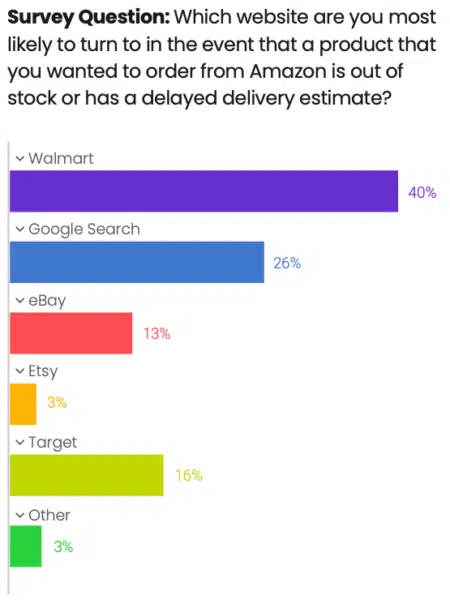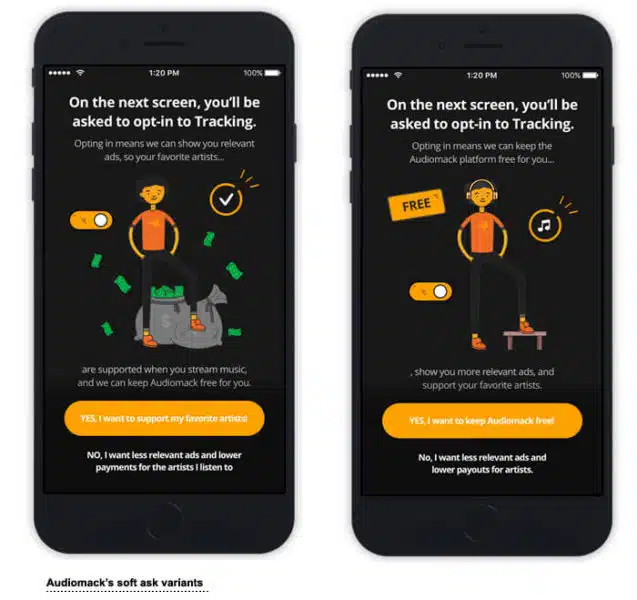SMX Advanced starts today; Tuesday’s daily brief
Plus, why you should prepare for Prime Day even if you’re not an Amazon merchant.
Search Engine Land’s daily brief features daily insights, news, tips, and essential bits of wisdom for today’s search marketer. If you would like to read this before the rest of the internet does, sign up here to get it delivered to your inbox daily.
Good morning, Marketers, stop making plans for who you want to be and focus on changing who you are.
That’s the takeaway from the latest episode of PPC professional Pamela Lund’s podcast “Not Bad Advice” with co-host CK Chung. It resonates with me because I grew up with a lot of bad habits and the world has a way of making you doubt yourself, so I wanted to share it with you.
Two years ago, I attended my first SMX conference. It was SMX Advanced, which just happens to kick off today (virtually), and I was responsible for running a part of the experience, despite feeling like I didn’t understand a lot of the content. Because of that I was afraid to ask questions or participate for fear of revealing my ignorance to my peers.
But, some time ago, I decided that there were enough external factors already holding me back and that I wouldn’t do that to myself. Flipping that switch and changing who I was instead of pretending future-me wouldn’t have these issues has made all the difference: it has enabled me to expand my coverage area to include PPC (by asking many, many beginner-level questions), it allows me to enjoy the conference experience for all it’s worth and it helps to relieve me of any imposter syndrome since I’m just not pretending anymore.
This advice can be applied to any aspect of your life, but you can start small by joining us at SMX Advanced today and tomorrow and engaging with your peers during Overtime Q&A or during one of our Ask the Experts sessions. You got this — I hope to see you there!
George Nguyen,
Editor
Ads for alcohol, gambling, prescription drugs and political ads are now banned from YouTube’s masthead
YouTube’s masthead ad units are one of the first things people see when they arrive on the streaming platform’s desktop site, mobile or TV app. That prime ad real estate, on one of the most visited sites on the web. However, is now off-limits for alcohol brands, gambling sites, prescription drug manufacturers and politicians, according to Sara Fischer with Axios.
The change took place yesterday and is in line with YouTube’s user controls on alcohol and gambling ads, which Google rolled out late last year.
Why we care. Google has a long list of prohibited and restricted ad content, but its policies are somewhat high-level, enabling it to exercise judgment on a case-by-case basis when necessary. If you work for (or with) a brand in one of these banned categories, you’ll need to account for your diminished advertising capabilities and bolster your marketing efforts elsewhere.
When they can’t get what they’re looking for on Amazon, 40% of consumers turn to Walmart

Amazon’s Prime Day event is just under a week away, on June 21–22. If you think that only Amazon merchants (and the agencies that work with them) have to prepare, think again: 40% of consumers say they turn to Walmart if the product they want is out of stock or delayed on Amazon, according to a Tinuiti survey of 2,000 consumers. Google Search was the third-place shopping destination, with over a quarter of respondents shopping there when Amazon doesn’t have what they’re looking for.
Why we care. If you’re a retail brand (or working with a retail brand), it’s a good idea to ensure that your inventory is discoverable on Walmart and Google — this can help you capture that excess demand. Remember, both Google and Bing now offer organic Shopping listings, and there are recently released integrations that can help Shopify merchants submit their products to show for free across these search engines.
Where would PPCs and SEOs be without Twitter?
“Exact” match. I’d say that the query “buy a cheap bicycle” has a very different intent from “why buy a cheap bicycle.” Google Ads, however, might match your ad for the latter even if your exact match keyword was the former, according to Brad Geddes’ experiences. It’s a good idea to check your data and use negative keywords if these terms are eating up your budget.
Weekly curated SEO tweets. If you go on Twitter purely for SEO, seotweets.io might be worth a bookmark. It’s a website that aggregates SEO-related tweets, curated by Adam Durrant.
PPC pros discuss ethics. Is audience targeting a form of discrimination? Would your agency take on competing clients? Would you take the retainer even if a client’s initiative isn’t likely to be profitable? These were just a few of the questions PPC pros discussed in #PPCChat last week. Read the text recap here or listen to the podcast recap here.
Get more app users to opt into ad tracking by speaking to what matters

Music sharing and discovery app Audiomack was able to get 64% of its users to opt into ad tracking by testing two versions of a “soft ask” screen (shown above) that appears before iOS’ App Tracking Transparency prompt. On one version (left image), the screen explained why the app wanted to track users in more generic terms (i.e., “show you relevant ads”). On the second version (right image), the screen uses language that’s more likely to resonate with the user: “Opting in means we can keep the Audiomack platform free for you…”
The addition of a “soft ask” screen is a clever way to expand on the very limited real estate iOS gives app developers to explain to users why they should opt in. But, I think many brands are failing to connect their needs with those of their users, whether they’re using just the iOS prompt or a “soft ask” screen: Users probably don’t care much that the ads are more relevant since they may not feel that ads can serve them, relevant or not. What they might care about is how a lack of advertising capability for the developers may affect the app’s user experience. If your app is entirely supported by ads, it’s easy to explain that opting in helps keep the app online and pays for updates. For apps that don’t rely entirely on ads, you may have to find a more creative way to make your users care, and you will if you want them to opt in.
Opinions expressed in this article are those of the guest author and not necessarily Search Engine Land. Staff authors are listed here.
Related stories